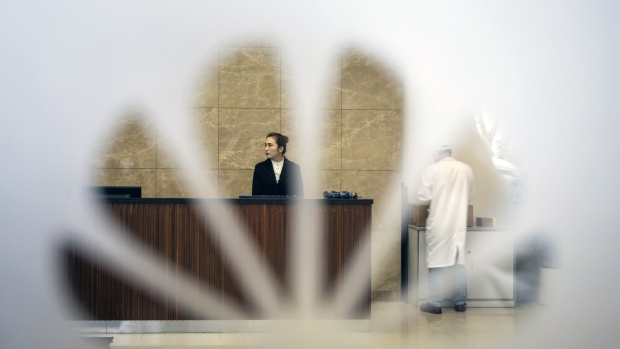May 16, 2019
U.S. Places Huawei and 67 Affiliates Around World on Blacklist
, Bloomberg News

(Bloomberg) -- The Trump administration said new restrictions on Huawei Technologies Co. announced this week would take effect on Friday, with the parent company and 67 affiliates in 26 countries placed on a blacklist that will limit its access to U.S. suppliers.
In a Federal Register notice released on Thursday, the Commerce Department said the new curbs, first announced the day before, would apply to Huawei and affiliated companies around the world from China to Germany and Madagascar.
Commerce Secretary Wilbur Ross told Bloomberg Television the measures limiting access to U.S. components would become official on Friday. Separately, he said President Donald Trump had given his department 150 days to establish a process to screen U.S. companies’ purchases of equipment from Huawei, and other equipment providers with which officials have concerns.
Ross dodged questions about whether the new moves against Huawei could lead to a negotiation with the company -- or the Chinese government. He insisted the growing campaign against Huawei remained a separate matter from broader trade negotiations between the U.S. and China, which have stalled in recent days.
Read more: Trump Order Restricting Huawei Sharpens Congress Focus on China
“The purpose we have in mind here is we think there is a significant danger to national security and to our foreign policy of the existing situation at Huawei,’’ Ross said.
In notice published Thursday, the Commerce Department’s Bureau of Industry and Security said the U.S. was adding Huawei’s affiliated companies around the world because they “pose a significant risk of involvement in activities contrary to the national security or foreign policy interests of the United States.’’
‘No One’s Interest’
“This decision is in no one’s interest,” Huawei said in a statement on Thursday. “It will do significant economic harm to the American companies with which Huawei does business, affect tens of thousands of American jobs, and disrupt the current collaboration and mutual trust that exist on the global supply chain.”
The U.S. has long accused the telecommunications equipment giant of facilitating Chinese espionage and sought to convince allies not to purchase its equipment for new 5G networks. The Justice Department is prosecuting Huawei over accusations of bank fraud, technology theft and violating U.S. sanctions against Iran.
How Huawei Became a Target for Governments: QuickTake
Huawei’s chief financial officer Meng Wanzhou, the daughter of its founder, was detained in Canada in December at the request of the U.S., which seeks her extradition over allegations of violating Iran sanctions.
Huawei has denied any wrongdoing and sued the U.S. separately for a ban on American government entities from purchasing its equipment.
--With assistance from David Westin.
To contact the reporter on this story: Shawn Donnan in Washington at sdonnan@bloomberg.net
To contact the editors responsible for this story: Simon Kennedy at skennedy4@bloomberg.net, John Harney, Karen Leigh
©2019 Bloomberg L.P.





